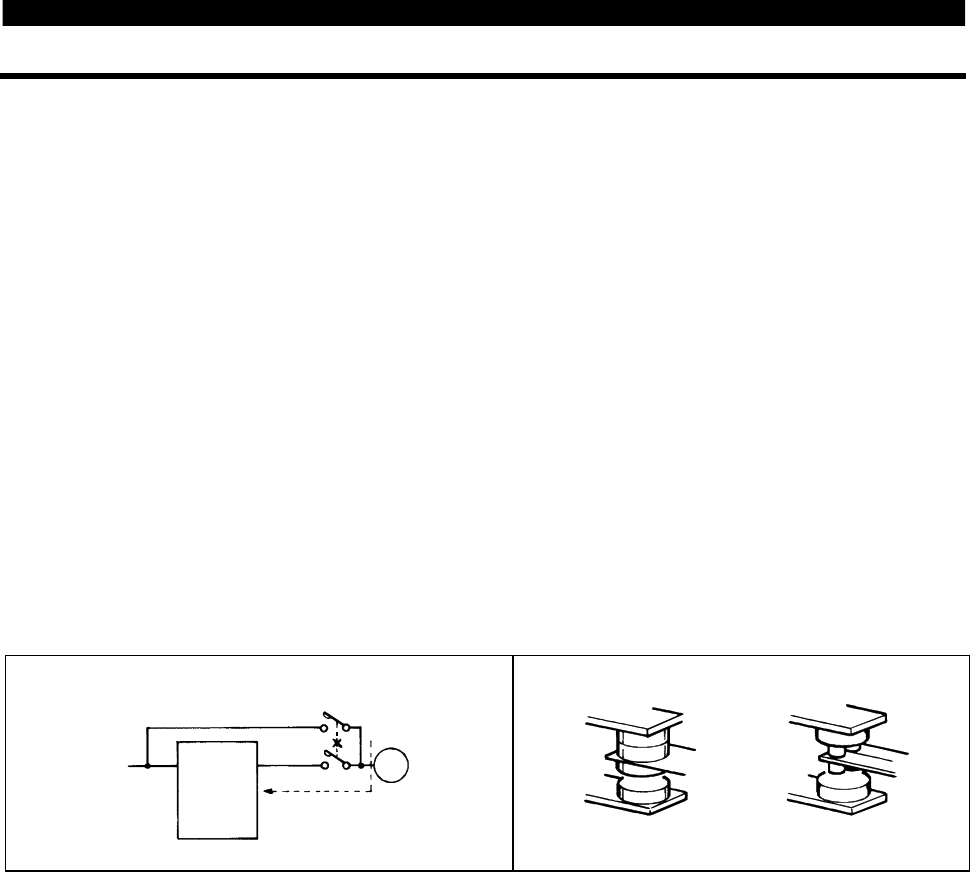
INSTALLATION AND WIRING
17
2.2.5 Design information
1) For commercial power supply-inverter switch-over operation, provide electrical and mechanical interlocks
for MC1 and MC2 designed for commercial power supply-inverter switch-over.
When there is a commercial power supply-inverter switch-over circuit as shown below, the inverter will be
damaged by leakage current from the power supply due to arcs generated at the time of switch-over or
chattering caused by a sequence error.
2) If the machine must not be restarted when power is restored after a power failure, provide a magnetic
contactor in the inverter’s primary circuit and also make up a sequence which will not switch on the start
signal.
If the start signal (start switch) remains on after a power failure, the inverter will automatically restart as
soon as the power is restored.
3) When the power supply used with the control circuit is different from the one used with the main circuit,
make up a circuit which will switch off the main circuit power supply terminals R, S, T<L
1
, L
2
, L
3
> when the
power supply terminals , R1, S1<L
11
, L
21
> for the control circuit are switched off.
4) Since the input signals to the control circuit are on a low level, use two parallel micro signal contacts or a
twin contact for contact inputs to prevent a contact fault.
5) Do not apply a large voltage to the contact input terminals (e.g. STF) of the control circuit.
6) Do not apply a voltage directly to the alarm output signal terminals (A, B, C).
Always apply a voltage to these terminals via a relay coil, lamp, etc.
7) Make sure that the specifications and rating match the system requirements.
1) Commercial power supply-inverter switch-over
U
V
W
R, <L
1
>
IM
MC2
MC1
Interlock
Power
supply
Inverter
Sneak current
S, <L
2
>
T, <L
3
>
2) Low-level signal contacts
Twin contact
L
ow-level signal contacts


















